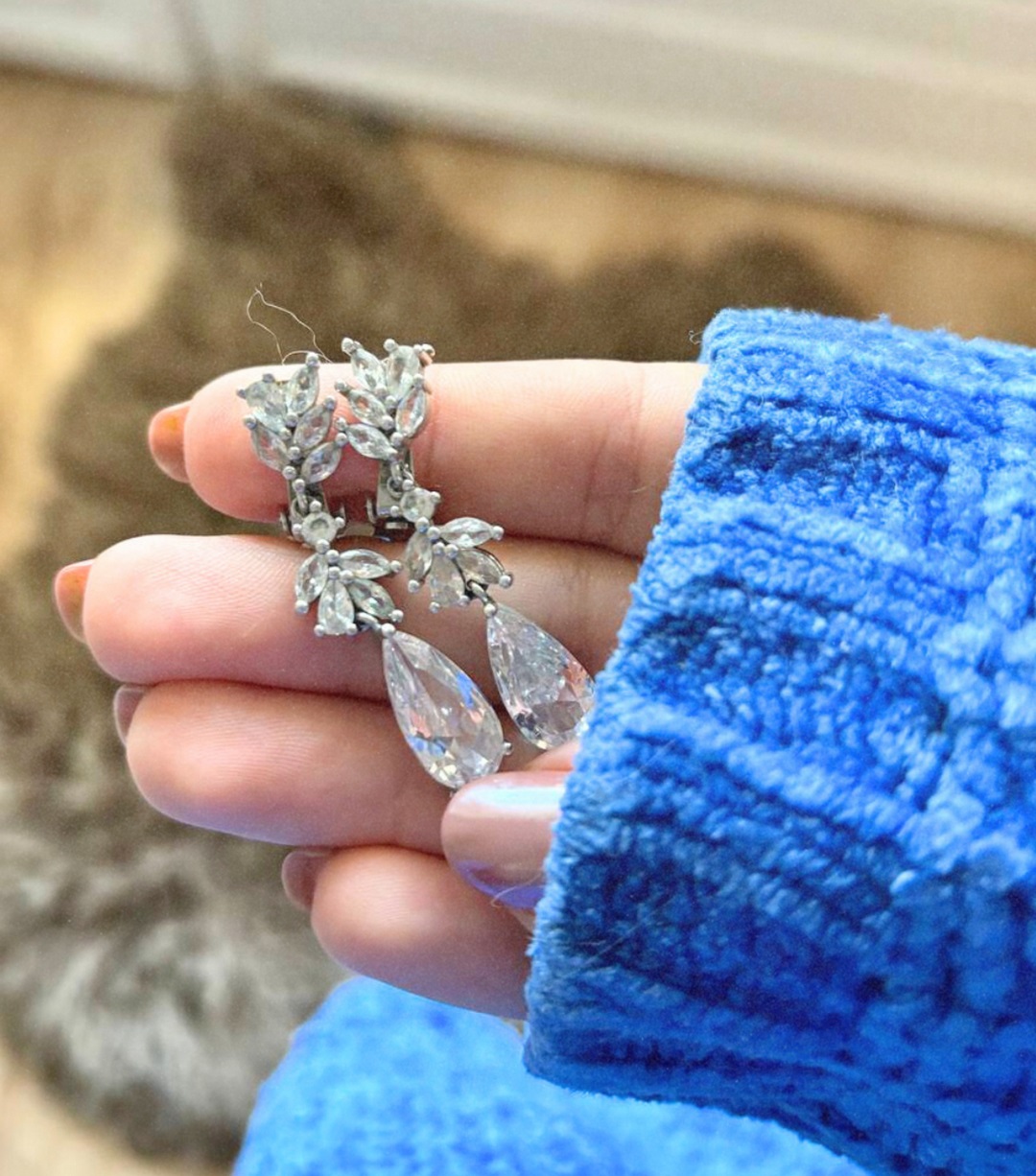I thought I was doing a good deed on Christmas Eve by taking in a young man shivering in the cold. But later that night, I woke to find him in my doorway, and my breath caught when I saw what he was holding.
Last Christmas Eve pressed down on me, heavy as the thick, relentless snow, the early darkness, and the silence echoing in the wind. I was just returning from the cemetery, where I’d visited my late husband Michael’s grave like I always did since his passing.
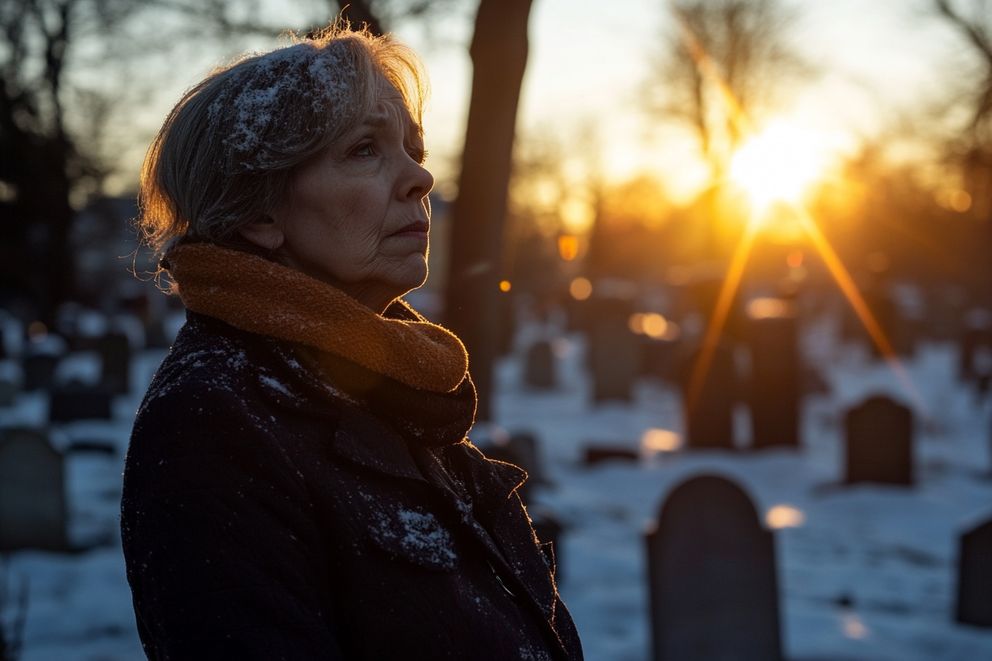
I had stood there bundled in my thick coat, staring at his name etched into the cold stone, missing him with an ache that never fully disappeared.
But somehow, the loneliness was sharper that year. My son David had called earlier to tell me they wouldn’t be able to visit because Lily, my seven-year-old granddaughter, was sick.
He apologized, adding, “Mom, we’ll come as soon as she’s better, I promise.”
“Of course,” I’d said, doing my best not to show my disappointment. I understood his position, but the silence in the house was almost too much to bear.
The streets were quiet as I drove home from the cemetery. That’s when I saw him. At first, I thought he was just a shadow under the streetlamp, huddled up and unmoving.
But as I got closer, I realized it was a young man in a worn jacket. He looked frozen, his knees pulled to his chest as he sat on the curb.
And although I should’ve ignored him, and had done so with other people in the past, something told me to stop. I slowed the car and rolled down the window.
“Are you alright?” I called out. “Why are you out here in this weather?”
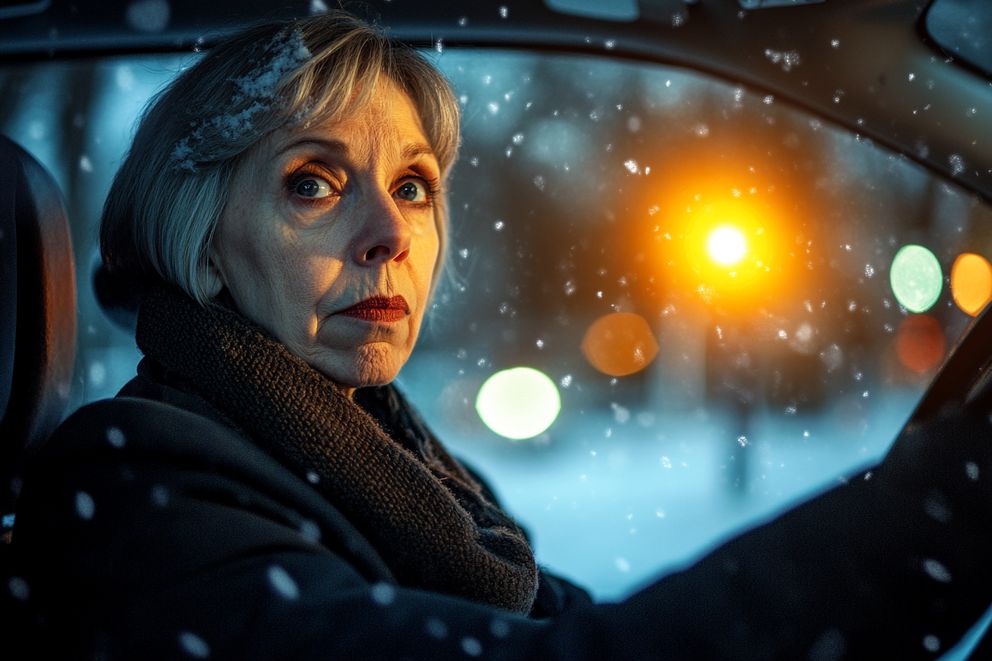
He turned his head slowly, meeting my gaze with striking eyes. They were the kind of light brown that stops you in your tracks, deep and piercing even in the dim light, and accentuated by his tanned skin.
For a moment, he just stared at me, blinking rather slowly. Then he said, almost too softly to hear, “I… I have nowhere else to go.”
I hesitated for only a second. “You’ll freeze out here,” I said. “Get in.”
He looked at me like he couldn’t quite believe what he was hearing, but then he stood up slowly, brushed snow off his pants, and climbed into the car.
“What’s your name?” I asked as I turned up the heat.
“Carlos,” he answered cautiously.
“Well, Carlos,” I said, “you’re coming home with me tonight. It’s Christmas Eve, and no one should be out in this cold.”
He didn’t say anything, but I caught the faintest nod out of the corner of my eye.
When we got to the house, I grabbed some of David’s old clothes from the closet and handed them to Carlos.
“The bathroom is down the hall,” I said. “Take as much time as you need to warm up.”
While he cleaned up and changed, I made hot cocoa, pulling out the marshmallows I usually saved for Lily. By the time Carlos came back into the living room, he looked more human and less like a shadow.
His now-clean hair curled beautifully, and the oversized sweater made him look younger than I’d first thought. He sank onto the couch, clutching the cup of hot cocoa.
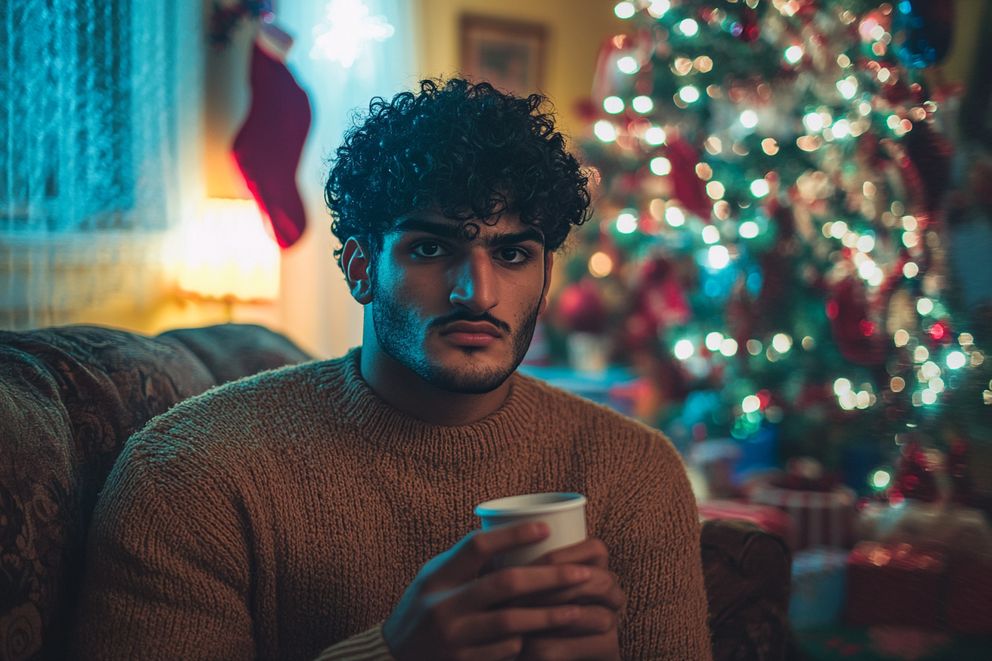
“You remind me of my son,” I said as I settled into the armchair across from him. “That’s probably why I stopped my car.”
It was true, except it wasn’t so much his looks that resembled David, it was his aura. It was hard to describe. David looked just like my late husband, with green eyes and pale white skin. Carlos was obviously of Latin-American descent. But there was still something about him…
He smiled politely, but his eyes remained guarded. “Gracias. I mean, thank you,” he said quietly, correcting himself. “You didn’t have to… but you did. I won’t forget it.”
I smiled back at him. “De nada (You’re welcome),” I replied, though my Spanish wasn’t good at all. “It’s almost Christmas. Everyone deserves to be warm.”
I wanted to ask him more about himself, what had brought him to the streets, why he was alone on Christmas Eve, but when I tried, his face clouded over.
“It’s complicated,” he said, looking down at his cocoa.
“Fair enough,” I nodded, deciding not to push. Instead, I put on a cozy Christmas movie on the TV, and later, I showed him to the guest room and wished him a good night.
“If you need anything, just knock,” I said.
“Thank you,” he said again, and this time, the corner of his lips turned up slightly.
Later that night, I lay in bed, staring at the ceiling. I was just starting to drift off when I heard a faint creak of floorboards outside my room.
I scrambled up in bed, every muscle screaming in protest, and turned to the door.
Carlos was standing in the doorway, his face shadowed and unrecognizable in the darkness.
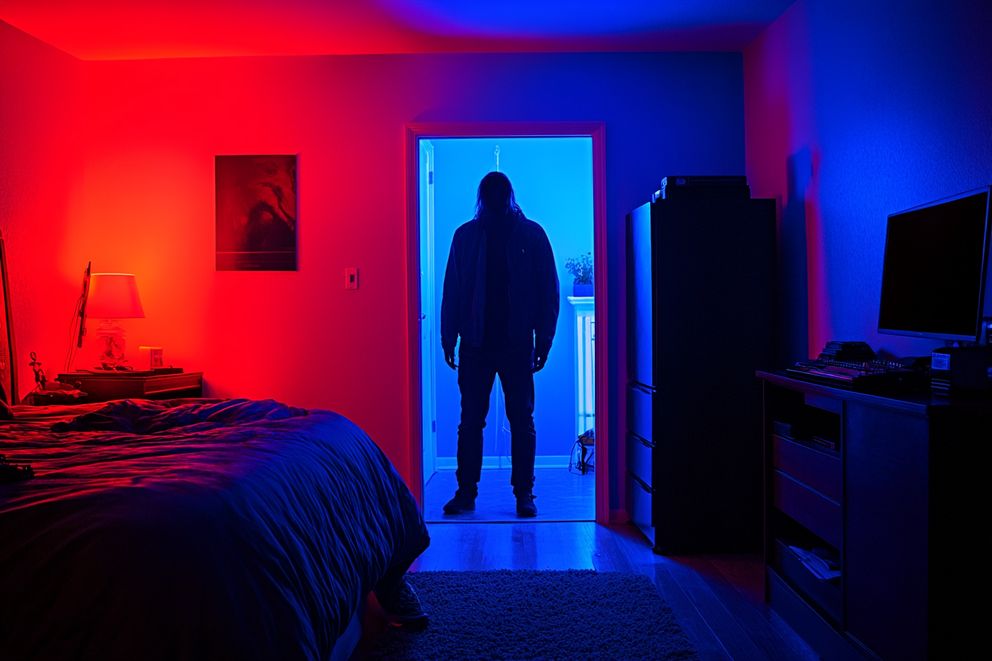
My heart quickened, and for one moment, I knew I shouldn’t have been so nice. Bringing a stranger home was a horrible idea.
My heart began to pound in my ears as I noticed something in his hand. I couldn’t make out what it was before he started walking toward me in slow and deliberate steps.
Panic surged through me. “STOP! WHAT ARE YOU DOING?!” I shouted, my voice cracking with fear.
Carlos froze, his eyes widening in alarm. “Wait!” he said quickly, holding up the object in his hand. Relief washed over me as I realized what it was: a small orange bottle with my heart medication.
“You didn’t take this,” he said, his voice calm but firm. “I saw it on the counter and thought you might need it. My abuela (grandmother) used to take it every night right before bed.”
The fear drained out of me, replaced by embarrassment. But my hands were still trembling. “Oh,” I said weakly. “I… I forgot. Thank you.”
He nodded and placed the bottle on the nightstand before backing out of the room. “Good night,” he said softly, and then he was gone.
My body slumped back onto the bed, and I stared at the bottle for hours, feeling foolish yet grateful. I had assumed the worst about him, and all he had wanted to do was make sure I was okay.
The next morning, I made pancakes, using the last of the blueberries I had stashed in the freezer. Carlos came into the kitchen, looking unsure of himself, and sat down at the table.
“Merry Christmas,” I said, sliding a small box across.
“What’s this?” he asked, looking genuinely surprised.
“Open it.”
He unwrapped the present slowly, pulling out the scarf I had knitted years ago. It was red and white, nothing fancy, but it was warm.
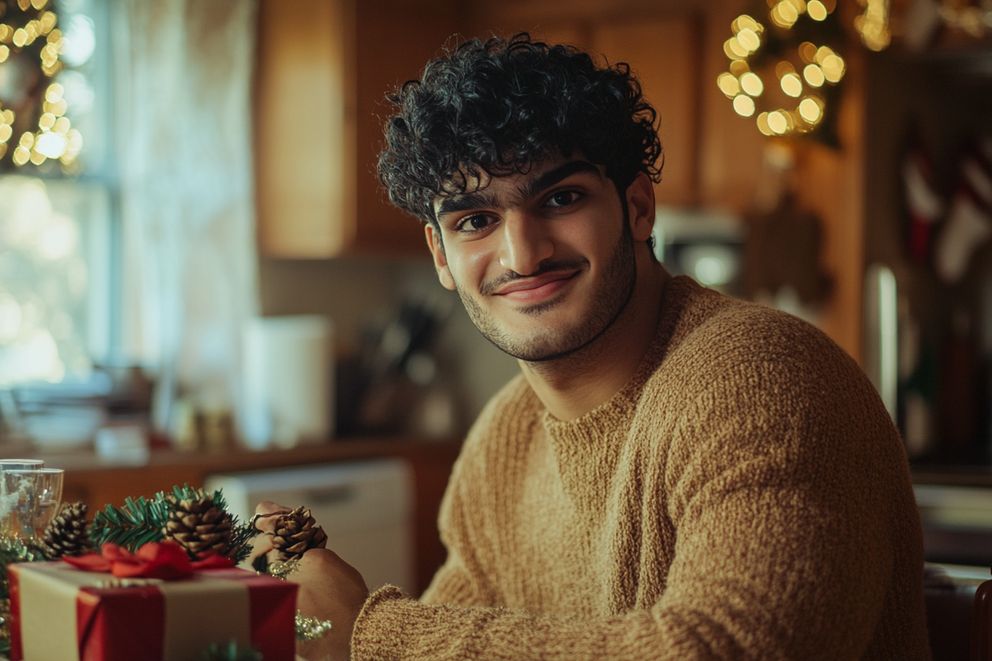
“Thank you,” he said again, running his fingers over the soft yarn. He wrapped it around his neck immediately and smiled.
We ate in mostly silence while I wondered how to bring up the subject of last night. I wanted to thank him and apologize for having been scared.
But after Carlos finished his pancakes, he stood up. He walked to the door where he’d left his duffel bag and slung it over his shoulder.
“Where are you going?” I asked, frowning.
“You really helped me last night, ma’am,” Carlos said, licking his lips. “Thank you. But I should go now.”
“Where will you go?”
He hesitated with one hand on the doorknob. “I don’t know,” he admitted. “I’ll figure something out.”
“Wait,” I said, standing. “Why don’t you stay? Help me around the house, make sure I take my pills. I could use the company.”
“Really?” he asked, hope flickering in his eyes.
“Of course,” I said. “You shouldn’t be out there on Christmas day, either. You can also work around the house as your way of paying for room and board. What do you say?”
Carlos simply smiled and set down his duffel bag again.
Over the next few weeks, we settled into a rhythm. Carlos was quiet and respectful, always making sure to keep his space tidy and never overstepping.
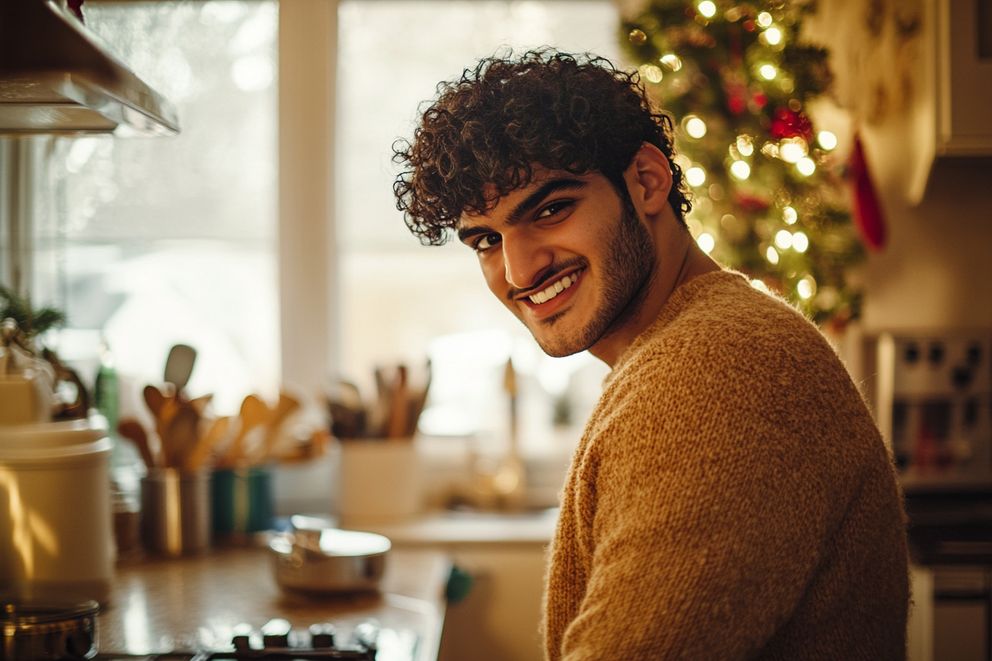
We even had a great New Year’s Eve together. And although I didn’t push, I was happy when he started to open up.
One night, in January, as we sat by the fire, he finally told me about his past. His troubles began when his parents kicked him out.
“They didn’t understand me,” he said hesitantly. “They thought I was wasting my life with art. They wanted me to study something practical, like engineering or medicine. When I said no, they told me I wasn’t welcome in their house anymore.”
So, he’d been ousted for pursuing his passion, of his dream of becoming an artist. Then life had dealt him another cruel blow.
A roommate had stolen everything he owned, like his few meager savings, and even items belonging to the landlord, before disappearing. He was later evicted for being unable to replace the stolen items. Finally, he lost his job simply for being homeless.
“I probably would’ve frozen out there if it weren’t for you,” he said with a soft sigh.
How could this world be so cruel?
I reached over and put my hand on his. “You don’t have to worry about that anymore. You’re safe here.”
Now here we are. It’s a year later, and here’s what has happened.
With my help, Carlos found a new job and a small apartment nearby. He became a regular visitor, bringing laughter back into the house. He even charmed my son, daughter-in-law, and granddaughter.
As we decorated the Christmas tree together, I realized how much my life had changed. Carlos was no longer a stranger I’d taken in; he was family.
And while he always says I saved his life, the truth is that he’d saved mine.



